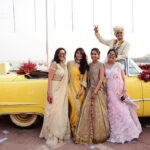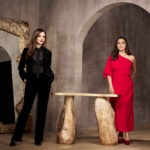With more than three years of experience in a luxury brand environment and more than fifteen years of experience in the garments sector as a self-taught textile designer and artist from Ahmedabad, Babita Jain founded House of Prana as a lifestyle, fashion, artwork, and home accessories brand.

Launched in August 2018, House of Prana a brand that stimulates a conversation about aesthetics, wellbeing and optimal living. Created to stimulate a conversation about aesthetics, wellbeing and optimal living with its customers, House of Prana aims at elevating sensibilities as it embodies the qualities of living more with less.
Here’s Babita Jain in a candid interview with PeakLife sharing her journey and much more.
What was the whole idea behind The House of Prana and how did the idea for your business come about?
My art journey began in school where fine art was my favourite subject. I loved playing with colours on canvas especially with the Ombre effects. Born in a Garment export family, I was always attracted towards fabrics and textures so I joined the family business just after graduation. In 1996, my family life took over but I continued to instil art into my children’s routines because I knew how important it was.
I decided it was time that I should pursue something that I liked doing. I wholly owe my journey from an artist to an entrepreneur to my daughter Tanya as she was the one who made me realize my love for art and fabrics after a sabbatical of almost 20 years. I started with making paintings first, but wasn’t satisfied as my true passion always lied towards fabrics. So, I thought of using my creativity on fabrics. That’s how the idea of designer, one of its kind luxurious scarves was born.
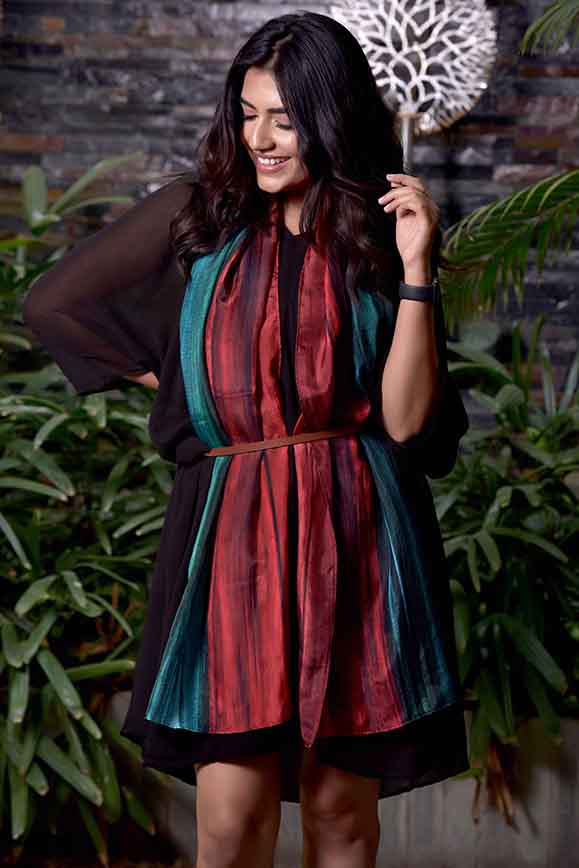
For me The House of Prana is a platform to elevate my team members and showcase my skills, creativity, insight and foresight. With many years of experience in garment business, I have an eye for commercial fashion and detail in product styling. I am a quick learner and wanted to put my creative skills and profound understanding of textile and different colour concepts and their application in design making. All the art designs in my collection have been exclusively created by me and used as digital prints. I gradually started to create different lifestyle and home decor products like scarves, cushions, tablemats and trays and experimented with few clothes as well.
Both my children had heard about my creative skills and love for art from my paternal family and as they grew up, they urged me to use my hard work onto something more productive. With my domestic help taking good care of us and after my children grew up and finished high school, I joined the Women Organisation FICCI Flo Ahmedabad chapter. I enjoyed being a part of FLO as it gave me plenty of opportunities to network with likeminded women like me who were entrepreneurs.
Being with them I always got inspired to start something of my own but could not realise my calling. In 2018, my daughter asked me to tell her the one thing that I liked to do most when I was in school. I told her I loved painting but had to let go of that passion as I had responsibilities to fulfil – from college to joining my father’s garment business, I had to do it all.
She immediately gave me a canvas and some paints and told me to show her my skill. From then on, every day she kept forcing me to paint until the day I realised that I could convert my artwork into exclusive digital prints to make gorgeous products out of it. The House of Prana stands for styles that are fluid and open to imagination. Our customer is independent, self- assured, has a unique trend-agnostic sense of style that is timeless.
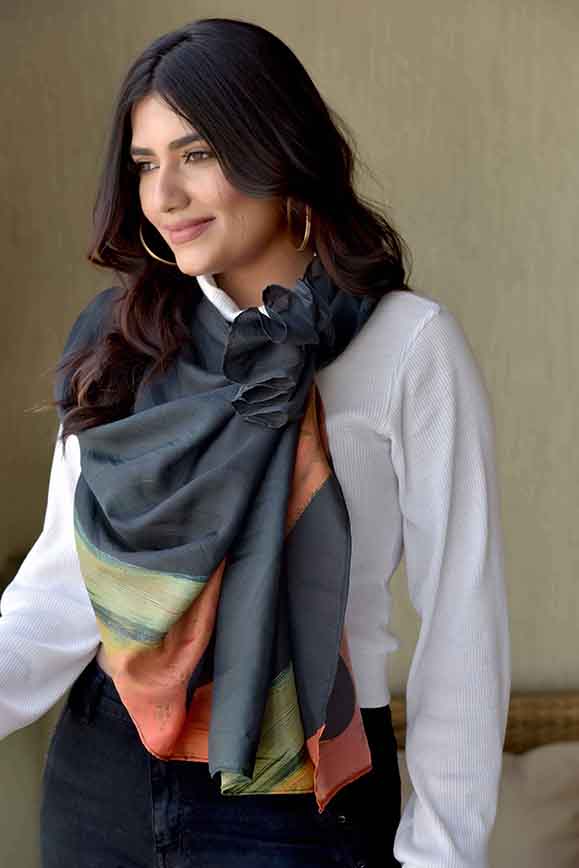
You are in the industry for close to two decades, could you share your experience and what got you interested in the garment industry?
I was born in a garment export family business, where my father and all his siblings worked together in the same business. He always used to take us to fashion shows and often invited my siblings and me for photo shoots for children wear when we were growing up. In fact, we used to wear most of the export style clothes from his business, so the attraction towards garments was inevitable.
Growing up we witnessed lot of parties where buyers and models were invited by my father. We simply loved the glamour and got automatically attracted towards this industry. So, I joined family business after graduating.
I remember the day I joined our business and I complained to my father saying that, nobody gave me anything to do, He said, “you must learn to grab opportunities yourself, do not expect someone to offer you opportunities” That piece of advice has really helped me in my entrepreneurial journey. I gained lot of knowledge about fabrics, their weaves, counts, styling, sampling, buyer correspondence, production, finishing, packaging and shipping etc.
How did you come up with the name for your company?
I launched The House of Prana in 2018. My art’s inspiration came from the soul, so with my daughter’s help I finalized on the name Prana, i.e. breath, considered as a life-giving force. My daughter designed the logo and website for me and guided me to dive into some research on my competitors so that I could be well versed with the current market scenario. I am truly grateful to her for my entire entrepreneurial journey.
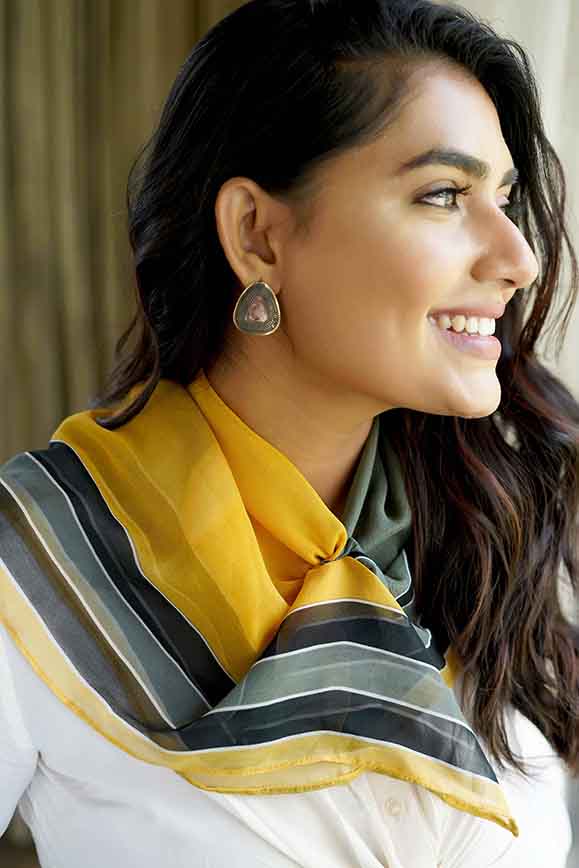
Could you tell us about the culture in your organisation and how did you establish it?
Initially I launched my brand with a team of 7 to 8 members. We started with physical exhibitions and on consignment basis projects in a few stores in Ahmedabad, Nagpur, Kanpur, Goa etc. apart from our website presence. But due to tough competition and cheaper substitutes of abstract art scarves, the sales were low. I slowly started to list my products on a few online portals like Nykaa fashion and Natty.
I did get a decent response but not really over whelming. Before I could garner proper results the pandemic hit us all. Top challenge was people management during the pandemic. There were low sales because of no exhibitions in physical spaces due to social distancing norms in pandemic. Low consumer demands as people have become very conscious of their needs. Additionally, we are a small team but few people left their jobs for better prospects, closer to their family, hometown etc.
In this trying time, I decided to hire freelancers instead of permanent employees to reduce costs. This also enabled new teams to bring in newer fresh ideas, so it was a win-win situation for me. When companies give out promotions or invest in their teams’ professional development, they typically don’t consider the freelancers.
But this pandemic shifted my mind set, I now truly believe interacting and working with the new generation does help in getting great fresh inputs to the table.
What were the key factors to become an entrepreneur?
I feel any business is best when it makes us content. We should love what we do and should be passionate about it. Our final set goal should be motivating enough for us to start our day with a zest. Faith, confidence, Hard Work, determination and perseverance are key factors to start an entrepreneurial journey.
I am an entrepreneur who believes in growing myself continuously. I am a go-getter who believes in going an extra mile to execute my responsibilities. It is an entrepreneur’s insight to see things, people and circumstances as they are and take full responsibility to accept them without blaming others. Good entrepreneurs know that they won’t have a happy and motivated team unless they themselves exhibit a positive attitude. This can be done by remaining positive when things go wrong and by creating a relaxed and happy atmosphere in the workplace.
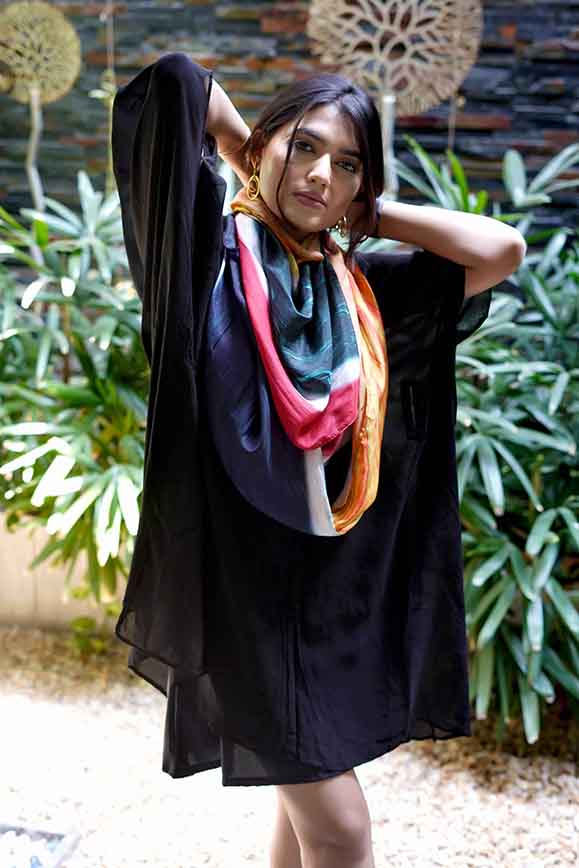
Effective leadership/ entrepreneurship and effective communication are intertwined. You need to be able to communicate in a variety of ways, from transmitting information to coaching your people. And you must be able to listen to, and communicate with, a wide range of people across roles, social identities, and more. Farsighted, compassionate, confident, honest, empathetic, firm, accepting and taking charge of mistakes, healthy criticism, and an open discussion are a few traits of successful entrepreneurs.
If you had to suggest 5 must read books during the pandemic, what would they be?
1. The Little Dictionary of Fashion by Christian Dio
2. Coco Chanel: The Illustrated World of a Fashion Icon by Megan Hess
3. Fashionopolis: The Price of Fast Fashion and the Future of Clothes by Dana Thomas
4. The Golden Thread: How Fabric Changed History by Kassia St. Clair
5. Fashion Worlds: Contemporary Retail Spaces by Michelle Galindo
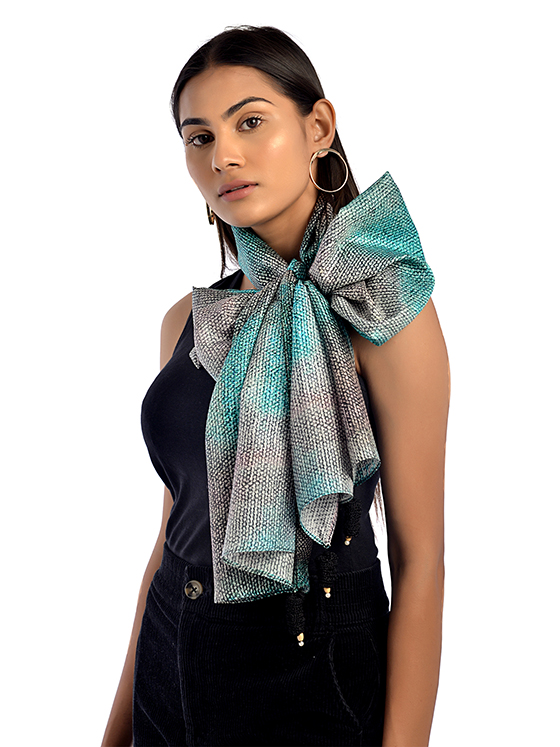
What key activities would you recommend entrepreneurs to invest their time in?
Most essential activities should include keeping our mind and soul fit, by starting our day early with, exercise, meditation, daily productivity and gratitude journaling. All these gives us energy to start our day with a zest. Apart from this we must invest our time in keeping ourselves informed by reading articles from the industry to keep ourselves well versed with current market scenario.
Any advice you would give for our budding entrepreneurs?
Starting a business is a very personal journey. You’re probably a creative person, with something different to offer in a fast-moving industry. It’s likely that you’ve spotted a gap in the market, or have a unique design in mind for a specific customer group. But bear in mind, the fashion industry specifically is notoriously difficult to predict. There is no space for being impulsive and hence your plan will need to be flexible as there are no guarantees. One will always have to be up for multiple challenges and deal with them as and when they pop up.



